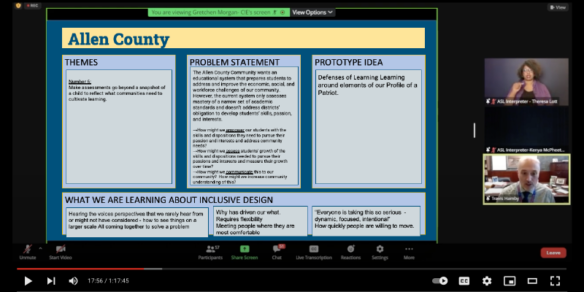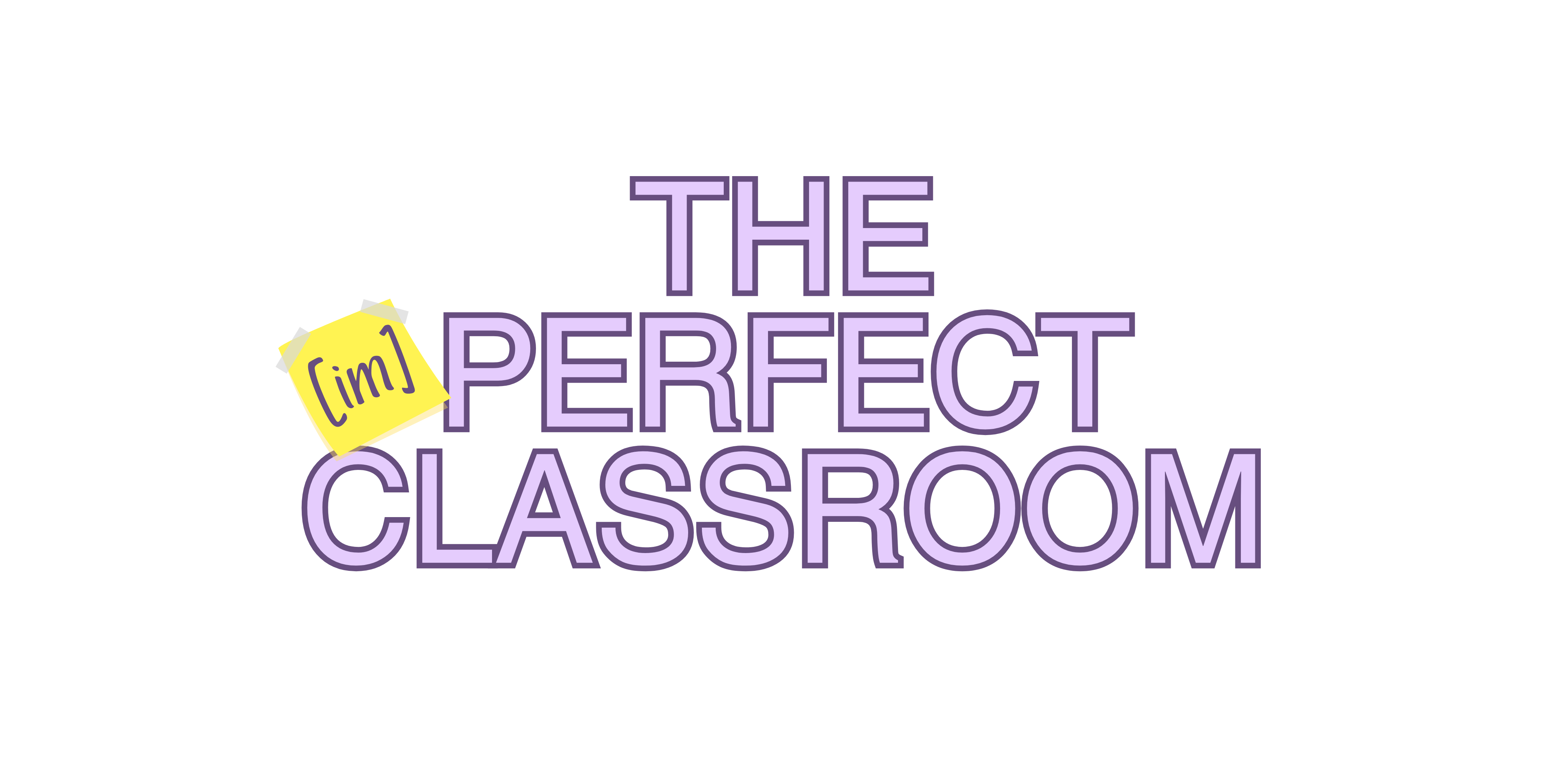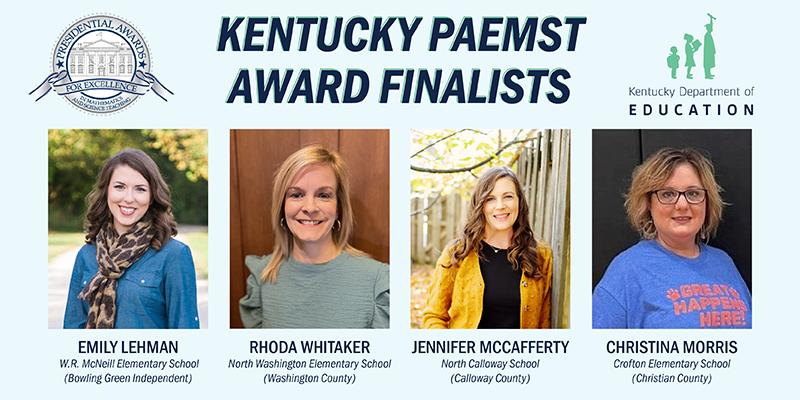
Members of the seven Local Laboratories of Learning (L3s) met with the Kentucky Coalition for Advancing Education on Jan. 25 to learn about the work of the L3 teams, identify common themes and patterns between the local districts’ work and look ahead to when they will be able to learn more. Many coalition members agreed that more Kentucky students will thrive if state assessments look at more than a simple snapshot of a child.
Several common themes and patterns about what changes need to be made in Kentucky’s public education system emerged during the most recent meeting of the Kentucky Coalition for Advancing Education (KCAE). Many coalition members agreed that more Kentucky students will thrive if state assessments look at more than a simple snapshot of a child.
The coalition – a large and diverse group comprised of more than 50 parents, teachers, school leaders and community members from across the state – was formed in 2021 to comb through what Kentuckians said is working and what isn’t in education to create a new vision for public schools in the Commonwealth. The work of the coalition is being recreated on a local level in seven districts – Allen, Fleming, Frankfort Independent, Jefferson, Johnson, Logan and Shelby – which are currently serving as full Local Laboratories of Learning (L3s). They formed their own local and inclusive coalition to guide their work and have been piloting new assessment, accountability and learning approaches.
The goal of the KCAE’s Jan. 25 meeting was to learn about the work of the L3 teams, identify common themes and patterns between the local districts’ work and look ahead to when they will be able to learn more.
Allen County Schools Superintendent Travis Hamby said his L3 team spent a significant amount of time looking at the empathy interviews – discussions that center on personal experiences and stories – they conducted within the community. They found that community members were concerned about the stress and pressure put on students during statewide testing and felt that school needed to be more fun and engaging.
“We have a community that really does want to see students be prepared in every aspect, from economic to social to being ready for the workforce,” said Hamby.
To begin to remedy these concerns, Hamby’s L3 team is exploring how to empower students with the skills and dispositions they need to pursue their passion and interests, assess students’ growth and effectively communicate this to the community through “Defenses of Learning.” These defenses, which are being used in other districts, could look like exhibitions with student presentations and capstone projects, welcoming community-based panelists to participate.
Jefferson, Johnson and Logan counties all identified similar interests among their communities.
Jefferson County’s L3 team expressed a need to recognize and nurture a broader set of student’s academic talents and life skills needed for success. They are working with students, educators, parents and community members to create opportunities for all students to demonstrate what they’ve learned in a way that is best for them.
Logan and Johnson counties’ L3 teams are both working on prototypes for dashboards or digital portfolios that will make it easier for students to see their academic growth, career exploration, career and technical education pathways completed, certifications earned and extracurricular activities.
“Students wanted a more individualized way of assessing their own growth, and they felt there was a disconnect from their learning and growth, which led to a lack of motivation for them,” said Heather Butcher, Johnson County Schools district assessment coordinator. “They needed a pathway to take charge of their own learning, and we think that this allows for their interests and needs to be heard and respected.”
Shelby County’s L3 team took a different approach as they discovered a separate theme in their community. They found that their schools act as a community hub, and more could be done to expand public trust among their community members.
Shelby County wants to create a better partnership with community stakeholders to create better opportunities for student engagement and success. However, they found there is a lack of trust among all stakeholders due to current policy, traditional mindsets, lack of communication, perception of certain jobs, cultural and language barriers and societal issues.
To build better partnerships throughout the community, the Shelby County team is working to create and implement a plan to engage every family, community member and employer with the Shelby County Public Schools’ Profile of a Graduate. The Profile of a Graduate is a community-wide vision statement describing what a learner should know and be able to do before they graduate.
The L3 teams will now begin to build out prototypes to address the issues they have identified within their communities.
KDE strategic planning
The Kentucky Department of Education’s (KDE’s) Chief Performance Officer Karen Dodd and Strategic Plan Program Manager Melody Cooper also joined the meeting to discuss what steps KDE is taking to align the department’s strategic plan with the feedback they received from coalition members on the United We Learn report.
KDE’s mission and vision emphasize the need to ensure success each and every student, and follow KDE values: equity, student success, collaboration, integrity, and innovation.
KDE’s strategic priorities and results include:
- Access and Opportunity: Students will have equitable access to opportunities needed for postsecondary and career readiness. Educators have the resources needed to provide such opportunities.
- Authentic Engagement and Partnership: Key stakeholders engage with diverse perspectives to build systems that will improve outcomes for students and their communities.
- Operational Excellence: KDE processes promote excellence, ensure quality and strive for continued improvement.
KDE Commissioner of Education Jason E. Glass also said he has been sharing the United We Learn report with various stakeholders.
“I’ve been using the United We Learn report as the basis for all of my opportunities to talk to people about education in Kentucky and where we’re headed,” said Glass. “If we’re not changing what the students are experiencing in a profound way, we’re not really changing anything.”



Leave A Comment